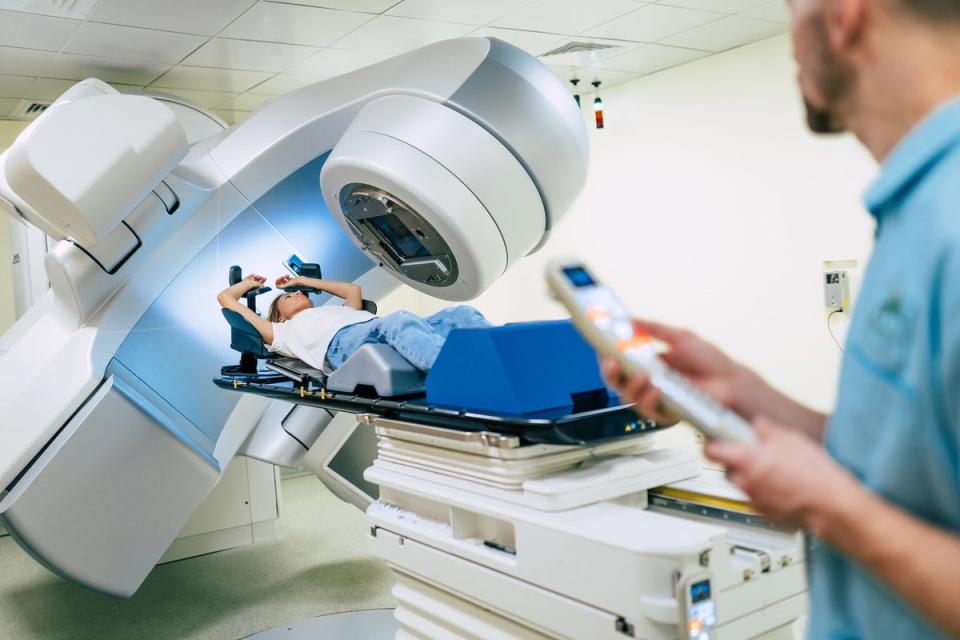A common type of bacteria has been found to make certain cancers “melt”, scientists have discovered.
Researchers said that they were “brutally surprised” to find that Fusobacterium – a bacteria commonly found in the mouth – appears to have the ability to kill certain cancers.
People whose head and neck cancers were found to have this bacteria within their cancer have also been found to have “much better outcomes”, according to a new study.
The exact biological mechanisms behind the link are being keenly studied by researchers at Guy’s and St Thomas’ and King’s College London, after they made the initial finding.
Their new study, conducted in collaboration with an international team of researchers, used a number of different methods to study the link.
Scientists used modelling to help identify which bacteria may be of interest to further investigate.
Then they studied the effect of the bacteria on cancerous cells in a laboratory and also performed an analysis on data on 155 patients with head and neck cancer whose tumour information had been submitted to the Cancer Genome Atlas database.


Academics initially expected a completely different outcome as previous research has linked Fusobacterium to the progression of bowel cancer.
In the laboratory studies, researchers put quantities of the bacteria in Petri dishes and left them for a couple of days. When they returned to inspect the effect of the bacteria on the cancer, they found that the cancer almost disappeared.
They found that there was a 70 to 99 per cent reduction in the number of viable cancer cells in head and neck cancer cells after being infected with Fusobacterium.
And analysis of the patient data found that those with Fusobacterium bacteria within their cancer had better survival odds compared with those who did not – Fusobacterium detectability in head and neck cancers was associated with a 65 per cent reduction in risk of death compared with patients whose cancers did not contain the bacteria.
Researchers hope the finding could help guide treatment for patients with head and neck cancer – which include cancers of the mouth, throat, voice box, nose and sinuses.
Experts said that there have been few therapeutic advances in head and neck cancer in the last 20 years so it is hoped the finding could potentially lead to new treatments in the future.
“In essence, we found that when you find these bacteria within head and neck cancers, they have much better outcomes. The other thing that we found is that, in cell cultures, this bacterium is capable of killing cancer,” senior study author Dr Miguel Reis Ferreira told the PA news agency.
“What we’re finding is that this little bug is causing a better outcome based on something that it’s doing inside the cancer. So we are looking for that mechanism at present, and it should be the theme for a new paper in the very short-term future.”
Dr Reis Ferreira, a consultant in head and neck cancers at Guy’s and St Thomas’ and senior clinical lecturer at King’s College London, added: “This research reveals that these bacteria play a more complex role than previously known in their relationship with cancer – that they essentially melt head and neck cancer cells. However, this finding should be balanced by their known role in making cancers, such as those in the bowel, get worse.”
Scientists have published a paper on the finding in the journal Cancer Communications, which describes how Fusobacterium is “toxic” for head and neck cancer and how its presence “may determine a better prognosis”.
“Fusobacterium detectability was associated with both better overall survival and better disease-specific survival,” the authors wrote.
Barbara Kasumu, executive director of Guy’s Cancer Charity, which helped fund the study, said: “We are proud to support the ground-breaking research conducted by Miguel and Anjali, which aims to enhance our understanding of head and neck cancer and develop more compassionate and effective treatments.”
